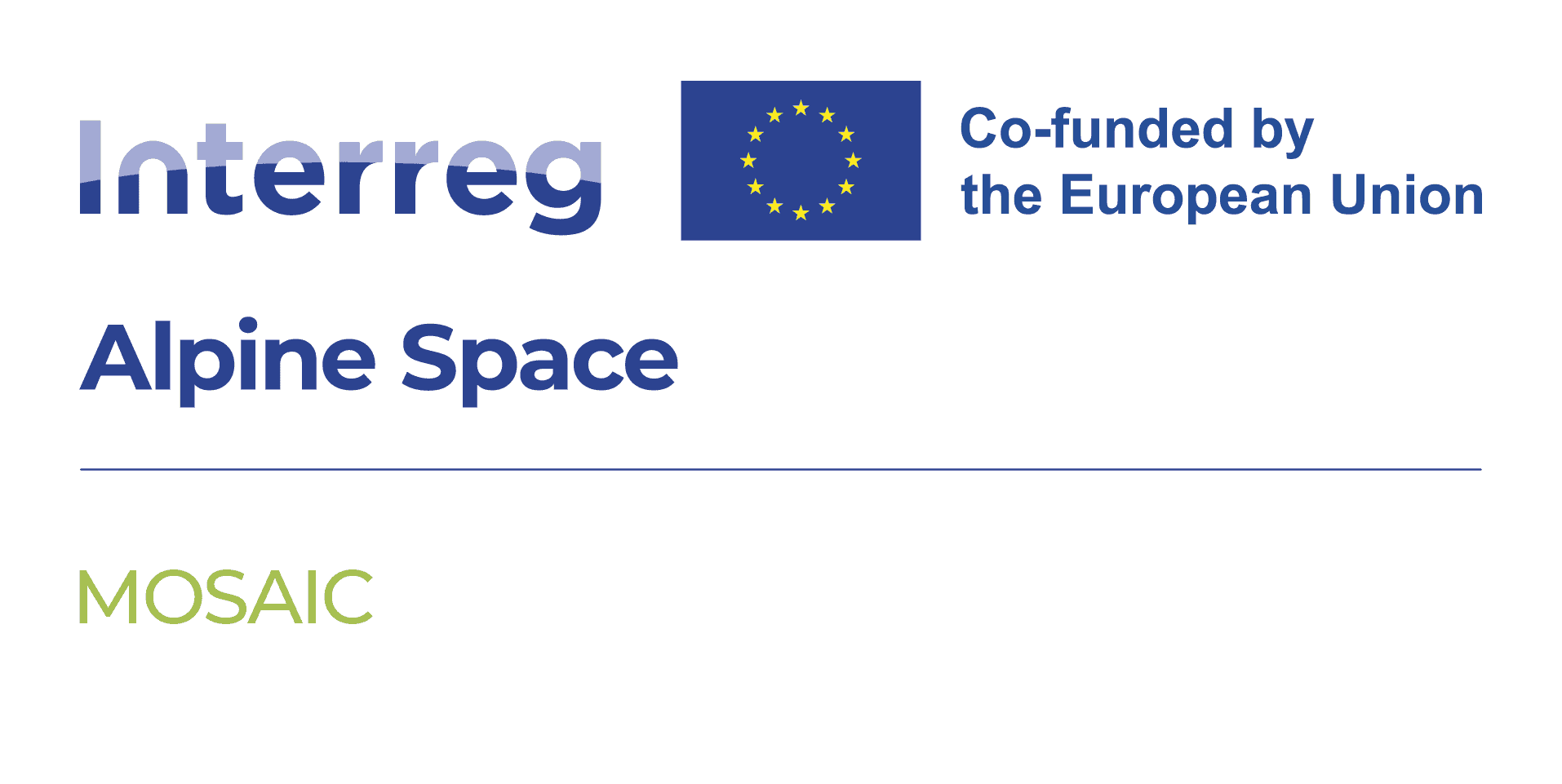
Overview
Forests provide essential ecosystem services that support human well-being and play a crucial role in the mitigation of climate change. However, their health and stability are also particularly affected by recurrent climate-related disasters. Therefore, MOSAIC focuses on hazard-resilient and sustainable protective forest management, which is essential for managing climate-related risks. In order to support Alpine climate action plans, the project partners aim to collect, harmonise and share data on Alpine climate-related disasters and trends. They strive to raise awareness among foresters, risk managers, decision makers and the public through an Alpine network of forest living labs.
Factsheet
- 2021 – 2027
- Climate resilient and green Alpine region
- SO 1.1 - Promoting climate change adaptation and disaster risk prevention, resilience, taking into account eco-system based approaches
-
- AG8 Risk governance
- 11/2022
- 10/2025
- 2.710.832 EUR
- 1.758.624 EUR
Description
Climate change (CC) is undeniably responsible for the increase in climate-related disasters affecting Alpine communities. These phenomena are often the result of compound events, a combination of multiple climate-related hazards that contribute to socio-ecological risks. One of the key drivers of the increased vulnerability are changes in forest ecosystems.
Forests provide essential ecosystem services that support human well-being and play a critical role in the mitigation of CC, but their health and stability are also threatened by CC.
Therefore, MOSAIC focuses on hazard-resilient and sustainable protective forest management coping with climate changes’ multiple dimensions, which is essential for managing climate-related risks. In order to support regional and Alpine climate action plans, the project aims to collect, harmonize and share data, models on Alpine climate-related disasters and trends. The project partners strive to raise awareness among foresters, risk managers, decision makers and the public through an Alpine network of forest living labs.
MOSAIC is an action-research project that relies on project partners recognized for their applied research activities and involvement in the science-decision-action triptych.
Project main activities
MOSAIC is structured in 3 distinct work packages:
1-DOJO: Data mining and prOJection of climate change effects on the Alpine Space fOrests.
2-NAZCA: NaturAl haZards modelling platform for analysing climate change Compound events on AS protective forests.
3-FORCE: Forest labs fOr Raising awareness on resilienCe of protectivE forest coping with climate change adaptation.
- MOSAIC will provide:
-Comprehensive stocktaking and assessment of spatially explicit past and projected climate (2050-2100 according to IPCC scenarios) and climate-related disaster data for the Alpine Space, made accessible via a webGIS atlas.
-A platform offering natural hazard and risk models upgraded for integrating the consequences of climate change on Alpine Space forests and on their ability to efficiently protect against natural hazards.
-Provision of data, experience and knowledge to support the definition of a Joint Alpine scheme for implementing an integrated and adaptive management of Alpine Space forests with protective functions that are coping with climate change impacts.
Outcomes
-
The first Alpine Climate Change webGIS atlas
An interactive webGIS platform that will provide open access to the results of 1) data mining & databases, 2) analyses of observed trends & projections, and 3) WP2&3. This atlas of spatially explicit data on climate change and related disasters will be a unique platform to visualise and assess historic and future information, e.g. on hotspots of multidimensional compound events identified in WP1&2. -
NAZCAlp : NaturAl haZards Calibrated model platform for Analyzing impatcs of CC compound effects on AS protective forests.
Incorporating upgraded natural hazard, vulnerability and risk models for locally evaluating impacts of CC (e.g. forest mechanical properties) and compound events (e.g. simultaneous occurrences of severe drought and wildfire) on the protective effects of AS forests in established open-access platforms, e.g. www.ecorisQ.org. The models will be applied in compound events hotspots identified in WP1 to evaluate CC-related socio-ecological risks under current and projected conditions (2050 and 2100). -
Catalogue of illustrated fact sheets for supporting integrated and adaptive forest management of Alpine forests with protective functions in climate action plans
Catalogue will be based on results from all WPs and FLLs. A collection of best practices and silvicultural measures for forest resilience and CC adaptation in AS protective forests will be presented with an illustrative approach. FLLs (research/demonstration plots) will be set up in the hotspots areas identified in WP1 and will serve as a research, training and awareness raising tool for different TG and will enable to virtually test and evaluate different management options.

